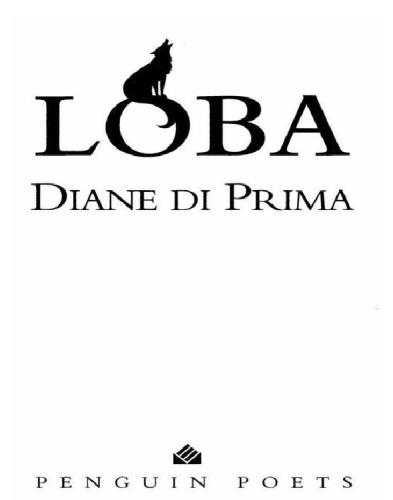
Loba
- اطلاعات
- نقد و بررسی
- دیدگاه کاربران
نقد و بررسی

August 3, 1998
Di Prima's feminist epic, here augmented and reissued, was compared to Allen Ginsberg's Howl by critics when it was first released in 1978. And Loba does resemble Howl--both books can be formless, vatic and breast-beating. But di Prima's lupine protagonist hasn't held up as well as Howl's liberatory speaker, often seeming less an empowering goddess than a vehicle for rainbow-colored mysticism and mythmaking. The older material, here "Book I," contains a great many Clan of the Cave Bear-style musings ("She came to hunt, but I did not/ stay to be hunted"). These are at their best, however, when juxtaposed with a gritty, wayward sensibility: "She sleeps on sheepskins in yr dining room/ shoots smack into her arm, murmurs soothingly/ of the glorious vegetable soup/ she will make, tomorrow."). Poems like "REEDGATHERS: The Loba North," "The Marriage at Cana" and "The Loba Prepares an Amulet for her Daughter" present dreamlike rituals that contain some lovely imagery, but allow for little more than impressionistic glimpses at the mysterious goings-on. The new poems of "Book II" draw more heavily and successfully on recognizable figures (Kali, Shiva, Hermes and the Buddha). Here, di Prima's invocations are spiked with etymological probings of received wisdom, as when examining the roots of ethics: "& ethos/ is not/ cannot be/ prima materia/ all "honor"/ is derivative." Such sentiments, "soft/ as russian vowels," show di Prima to be a pivotal figure for those who would rewrite the archetypes of the unconscious.

August 1, 1998
A prolific writer generally associated with the Beat Generation, Di Prima deserves wider recognition. This epic poem, originally published in 1978 as a work in progress (eight parts) in a nicely illustrated edition, appears here in its completed form (16 parts) for the first time. For Di Prima the Loba, or she-wolf, represents a fundamental feminine principle, a powerful force underlying female sexuality. With reference to legendary figures including Eve, Helen of Troy, the Virgin Mary, and Kali, she explores this mysterious energy as the source of a unique female consciousness. The strength of these poems lies in Di Prima's ability to "make it new"-to synthesize mythological elements from a wide range of cultures into a unique vision based on Navajo wolf mythology. This major poem is strongly recommended for all larger poetry collections and for academic libraries serving women's studies programs.--William Gargan, Brooklyn Coll., CUNY




دیدگاه کاربران